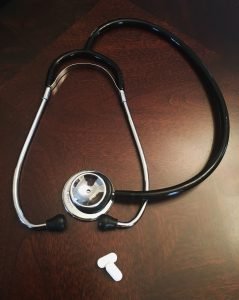New rules are now in place regarding federal Department of Transportation drug testing that have added the semi-synthetic opioids hydrocodone, oxycodone, hydromorphone and oxymorphone to the screening list.
You might know these as one of these common brand-name opioids: OxyContin, Percodan, Percocet, Vicodin, Lortab, Norco, Dilaudid and Exalgo.
That the DOT is now looking for these opioids in drug tests (as of Jan. 1) is further evidence of the massive extent of the opioid crisis in the United States.

It’s the deadliest drug crisis in U.S. history, according to The New York Times, killing as many as 90 Americans every day.
Overprescription of opioid painkillers is a major cause for the growth of the problem over the past two decades. Overdose deaths linked to prescription opioids were five times higher in 2016 than in 1999, and sales of these prescription drugs have quadrupled in that time, according to the Centers for Disease Control. Pharmaceutical and insurance companies get their share of the blame, too, and the explosion of the incredibly powerful synthetic drug fentanyl has exacerbated the issue.
 What is being done about the problem today? What can people do who are caught up in the vicious cycle of opioid addiction?
What is being done about the problem today? What can people do who are caught up in the vicious cycle of opioid addiction?
In October, President Trump designated the crisis a public health emergency. The declaration didn’t come with funds to fight the problem, but it does escalate the visibility of the crisis. The declaration came months after a grant totalling nearly $500M that gave money to states — including $11M to the state of Washington — to fight the opioid-abuse epidemic.
In November, Snohomish County announced that it would be treating the crisis almost as if it’s a natural disaster, partially mobilizing its Emergency Coordination Center to help battle what has become a massive local problem. According to KING 5, overdoses make up a quarter of the cases seen by Snohomish County’s medical examiner.
While the battle rages nationwide and locally to reign in the abuse of opioids, the fight to help individuals battle addiction remains key.
On the local level, inpatient treatment for drug abuse can be an effective method of getting clean. Here’s a list Bostec compiled recently of several clinics in the Puget Sound region.
Another way to fight drug addiction is to give our office a call. Bostec provides tools that can help families monitor and measure drug use. If someone in your life is addicted to painkillers and needs help getting clean, Bostec can administer a drug test in our office or provide a drug test kit to use at home.
Without a doubt, the ongoing opioid crisis is a major problem. But change happens on the individual level, one person at a time.
It is never too late to begin taking steps to get clean.

